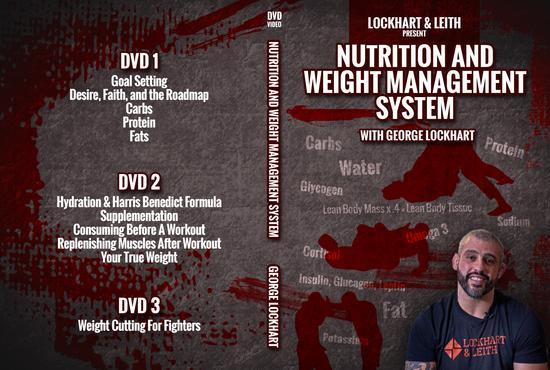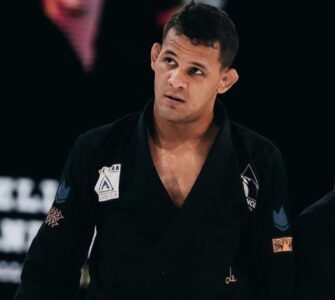Nutrition for combat athletes can be challenging to plan. Today, we’ll make a simple, step-by-step nutrition plan for you to get started!
Combat athletes go through one of the most rigorous exercises and workouts among all athletes.
This is because their sport requires tremendous amounts of endurance and stamina. Although proper workouts are essential to their performance, it’s only half the story.
Nutrition for combat athletes is as important because this gives them the strength to endure pain and battle fatigue. If you’re looking to get into the art of combat training, this article is for you!
Why Is Nutrition so Important?
Nutrition has always been an integral factor for all of us. The nutrients we take in determine the stability of our immune system, heart rate, and all of the other health factors out there. However, when it comes to athletes, it becomes even more important.
Professional players or varsities that play non-combat sports such as basketball, football, and volleyball can stray away from proper nutrition.
For example, NBA players like Charles Barkley, Kyle Lowry, and Raymond Felton have a track record of not being in top shape during an NBA season.
This is because non-combat sports rely more on skill than conditioning. On the other hand, combat sports such as boxing, mixed martial arts, and professional wrestling require a strict nutrition plan.
Players who don’t follow these diet plans are more prone to injuries, illnesses, and even death.
Boxing and wrestling as examples
Boxing is a prime example of a sport that needs proper nutrition. Almost all of the greatest boxers have little body fat. This is because the more muscle you gain, the more you’ll endure pain. Muscles receive pain much better from punches than fat.
This is the reason a strike to the abdomen is a lot more painful for a fat person compared to a fit boxer like Floyd Mayweather Jr.
Moreover, since boxing revolves around fast and strong punching, players need a good dose of protein to develop larger muscles for more strength.
Lastly, another overlooked aspect of nutrition is what it does to your heart and bones. Combat athletes rely on their hearts more due to the strain that it receives from the nature of the sport.
Meanwhile, a combat athlete’s bones must be stronger than usual. This is particularly the case for those involved in wrestling or MMA since these sports can break your bones.
Speaking of injuries, there has been many unfortunate deaths of combat athletes that were caused by heart attacks too. Finding a balanced nutrition to promote a healthier heart is crucial especially for older athletes.
The Procedure

Step 1: Know what you need and what you don’t that much.
Muscles are one of the most, if not the most important weapon of athletes. This is why rebuilding and maintaining muscle tissues as well as promoting muscle growth is crucial for athletes.
And what better way to empower your muscles than to take in protein rich foods. Egg whites, different kinds of meat and fishes make are excellent sources of protein. However, do not be tempted to get your protein from processed meat or cold cuts.
They are what you call “sub-optimal” protein sources. So if you want to maximize your protein intake, go natural and organic. You can even produce these with just simple kitchen tools and raw soymilk ingredients.
As for carbohydrates, contrary to what most people believe, athletes are better off lessening their carbohydrate intake. However, this might not be true for all athletes types or sports.
To know what’s best for you, there are still a lot of things you have to consider such as your body type and the type of sport you are doing.
Step 2: Try searching for supplements that work for you.
Supplements are crucial to give you a well-balanced diet and nutrition. This is because there are a lot of foods which you must lessen or avoid. Supplements help make up for the vitamins and minerals you might not be getting by avoiding a particular food group.
It also helps increase your intake of those vitamins and minerals which you should be getting the most.
For instance, some studies show how athletes take excessive amounts of Vitamin A & B (except B2) but lack others such as Vitamin D, calcium and folic acid
Do note, however, that supplements are best prescribed by your attending physician to have optimal effects.
Step 3: Avoid processed foods if you can help it.
This is a bit cliche for athletes in general, but for combat athletes, this is crucial. Carbohydrates (like sweets) in general that can be found in other forms such as donuts, biscuits, soft drinks, and chips should be avoided.
To begin with, combat athletes need to lessen their carbohydrate intake. If organic, or even natural carbohydrates should be lessened, then it only makes sense to avoid altogether processed foods that contain such.
This also applies to cold cuts, processed meat like meatloaf, sausages and the like, just as we mentioned earlier.
Step 4: Assess your appetite so you can schedule your meals.
This step is not only important for those who want to keep fit or are on a diet to trim down body fats and calories. This is also a very crucial step for combat athletes who want to stay in top shape for top performance.
Breakfast and lunch are essential for combat athletes. This is the reason assessing your appetites and scheduling your meals makes for a vital step. You can’t be too hungry for dinner and too full for lunch or breakfast.
If you know you have quite an appetite, then adjust the time of your meals and the amount of food you eat every meal. A good breakfast can help improve the overall performance of an athlete for that day.
Step 5: Always watch your calorie intake.
About Step 4, assessing your appetite and planning your meals ahead can help you watch your calorie intake. And this step is crucial if you want to stay in shape for your competitions or in top condition.
There are two critical concepts you must remember. These are resting energy expenditure and daily energy expenditure.
These two will help determine how much calories you need to perform a task and how much calories you can only take your body weight.
Your total daily energy expenditure will tell you how many calories you can only take not to gain or lose weight. MMA fighters, boxers, Jiu Jitsu athletes and the like need to stay in top shape for their fights.
Combat athletes like them need not lose or gain weight as a slight difference can affect their performance by a large margin.
At the end of the day
At the end of the day, it is still important to consult with your attending physician and to be attuned to your body. The best diet, workout routine and supplements for you are best dictated by your physician. Planning your diet and nutrition can only do so much.
We are not saying that doing all of this on your own is bad, but then, it is still best to consult medical matters such as these to professionals.
However, not having a physician is no excuse to not plan your nutrition accordingly, especially for combat athletes.
Remember, that you will always be what you eat!
If you are not sure where to start and how to eat well, check out our newest and best-selling diet product from George Lockhart. Lockhart is one of the UFC’s leading nutritionist and has helped some of the best professional athletes in the world lose weight and doing it in a healthy fashion. Lockhart is the real deal and this product can literally change your life. It is an E-Book and a DVD. This is also available as a digital download below.



















